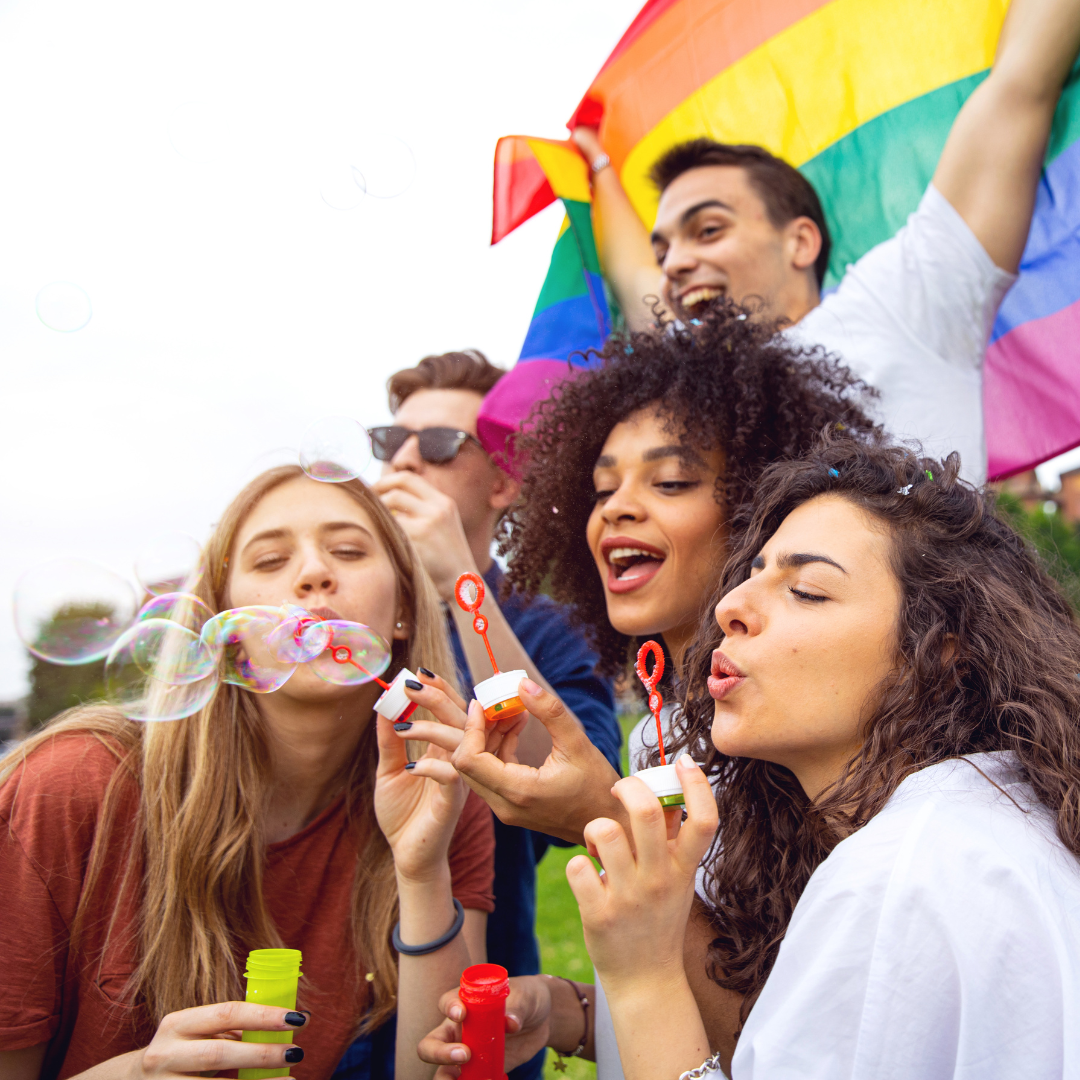
How to Be an Ally
You might have heard people talk about being an LGBTQIA+ ally before but not have known what it really entails. In the simplest terms, being an ally means that you are a friend to marginalised communities and are willing to stand up for the fair and equal treatment of the members of those communities.
But how do you become an ally?
Minus18 has some great advice for being an ally. They suggest being visible – by wearing pronoun pins, a rainbow badge or lanyard, or including pride posters and stickers on your office door or walls. UNE is a member of ACON’s “Welcome Here Project” which provides visibility for areas that are welcoming to LGBTQIA+ people. This is a great option for businesses that want to show support, but on an individual basis, the best way is to be visible.
But being visible in your support doesn’t only mean wearing rainbows or including your pronouns in a social media bio. It also means being proactive in standing up to hate. At UNE we encourage our students and staff to be Active Bystanders.
Being an active bystander can sometimes be scary – maybe you don’t know the right thing to say, or you’re worried you’ll do the wrong thing, but it’s important to remember that there are many different ways to be an active bystander.
In some cases it can be as simple as changing the subject – if someone says something that is prejudiced or homophobic and you don’t feel comfortable or safe confronting the person about it, you can simply change the subject. In this way, you’re being an active bystander without needing to confront anyone, and it tells others that they won’t get a reaction if they make comments like that again.
Why is it important to be an ally?
Everyone needs allies – whether it be a friend or a stranger on the street, everyone deserves to be treated with equity, dignity, and respect.
Being an ally means being that person who stands up for others, even if you don’t know them.
As we said before, being an ally can be bold and in your face – you can go to the parades, you can wear the rainbows, and you can be loud in fighting for peoples’ rights – but being an ally can also be simple, and quiet. If you’re not an extrovert or you prefer to keep to yourself, you can still be an ally to the people around you just by listening to and supporting your LGBTQ+ friends.
If you’d like to learn more about being an ally, and get involved with allyship at UNE, check out the UNE Ally Network.
The Ally Network aims to:
- Provide a visible network of approachable Allies to the LGBTIQIA+ community.
- Establish UNE as a safe, inclusive, and welcoming environment to everyone, regardless of their past, present or potential situations.
- Conduct an audit of current UNE policies and offer informed suggestions for updates and amendments to these policies to strengthen inclusivity.
- Build a support network through education and events.
Joining the Ally Network is as easy as sending an email to allynetwork@une.edu.au with your name and UNE email address. In your email let them know if you’re a staff member or student, whether you’ve completed any Ally training and provide details, and why you’d like to join the UNE Ally Network.
The Ally Network also has a list of members who have completed the Ally training and have opted to have their details public. If you have any questions or concerns, you can contact one of those people for help and support at UNE.
So remember, allyship can be as simple as standing up for marginalised people in your day-to-day life or as complex as tackling systemic issues, but whether it’s a small action or a big one real allyship requires willingness to do something in the face of injustice or discrimination.


